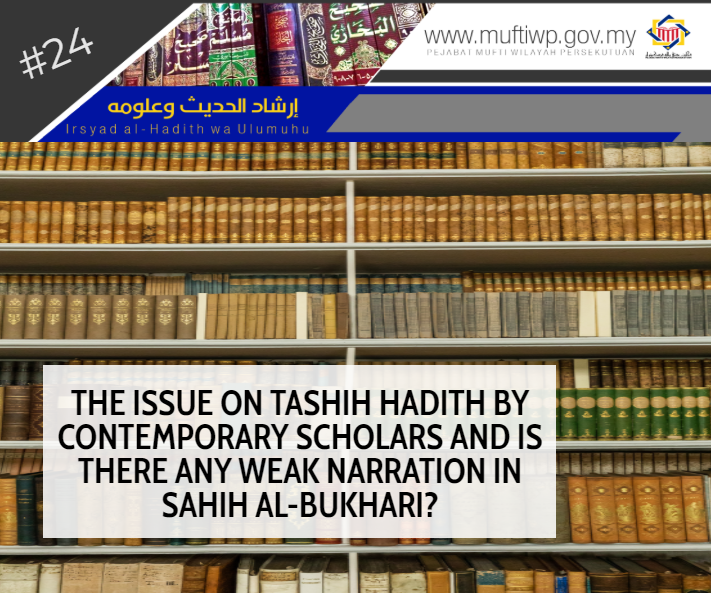Question:
What is your opinion on tashih hadith made by contemporary scholars? Is there any hadith which is weak in its usul narrated in Sahih al-Bukhari?
Answer:
Alhamdulillah, praise and thanks to Allah for the countless blessings He has blessed us all with. Blessings and salutations to the Prophet Muhammad PBUH, his wives, his family, companions and all those that follow his teachings to the day of judgement.
As stated by Dr Muhammad Ijaj al-Khatib in his book entitled al-Sunnah al-Nabawiyyah, this is his answer:
- It is the ijma’ of the scholars of hadith that every hadith in Sahih al-Bukhari are sahih and is connected to the Prophet PBUH and this ummah has decided and acknowledged this. If there are some people who state that there are hadiths in Sahih al-Bukhari which do not comply with the conditions set by al-Bukhari, then, this is already answered by Sheikh al-Islam al-Hafiz Ibn Hajar al-Asqalani in his book Hadyu al-Sari in which al-Hafiz Ibn Hajar made it as the introduction in his book Fath al-Bari.
- Some researchers said that some hadith recorded by al-Bukhari in his Sahih followed by the phrase ‘this hadith is sahih’. Therefore, some people think that there are hadith which are not sahih. This is the opinion which contradicts with the truth.
- In the issue pertaining to tashih made by contemporary scholars, it is viewed that they should not take things lightly or being too strict in ruling. Stating a hadith as sahih or dhaif is generally based on specific scientific methodology. Originally, tashih or tadh’if upon a hadith is in need of consideration and study. Therefore, there is a research based on this topic or thematic study written by Dr Abdul Razzaq bin Khalifah entitled “The Issue of Tashih and Tahsin in Current Times”
In conclusion, in the issue pertaining to tashih and tahsin of the hadith as well as stating the rule of the hadith as dha’if and mawdu’, it is possible to be done by the experts in hadith who comply with the set conditions. Among the requirements needed by a mujtahid is adil, have knowledge in the method of jarh wa ta’dil (in determining the narrators), understanding the methods of the past scholars and etc. All these should be learnt in-depth. Therefore, it is not an easy thing as it needs ilm al-rijal (knowledge regarding to the narrators) to know each narrator personally in the sanad, and not simply taking from the words of some scholars. In fact, each mujtahid should see the whole picture before deciding on the ruling of something. Moreover, if there is a hadith which is not stated on its ruling whether it is sahih or hassan, so, it cannot become a hujah unless after it is evaluated and studied by considering things like the condition of the narrators as well as gathering all riwayat, mutaba’at and syawahid. If this is not done, then it is enough for us to just hold on to the opinions of the past scholars in determining the status of a hadith.
May this explanation give us all better understanding in religion. Ameen.
Wallahua’lam.


